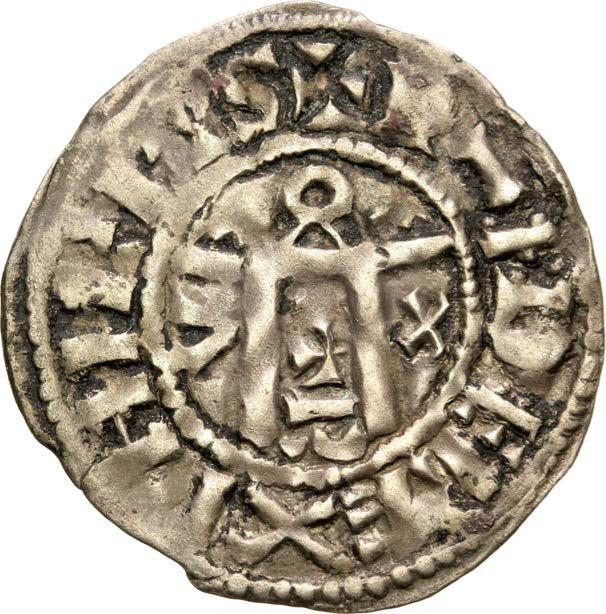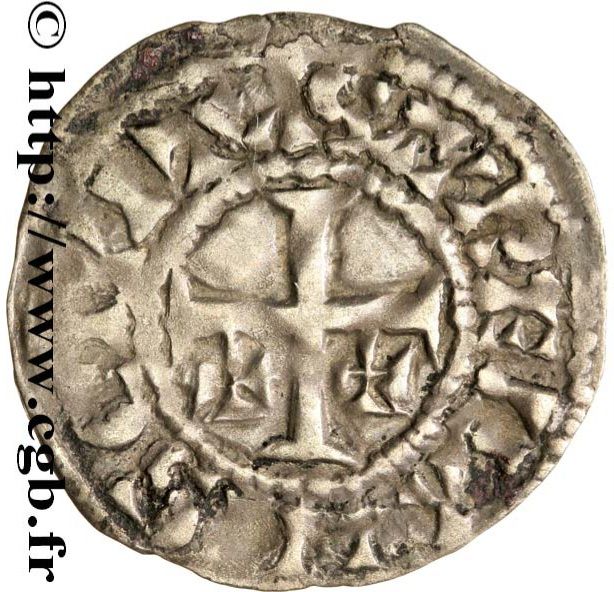

France Obole - Philippe Ier (Orléans; 3e type)
Description:
1 Obol Obole - Philippe Ier (Orléans; 3e type) coin from France. Design, history & value.
1. Introduction
The Obole coin of Philippe Ier, a significant medieval French coin, showcases intricate designs and historical importance. This coin, minted between 1060 and 1108, represents a fascinating era in French numismatics.
2. Historical Background
Issued during the reign of Philippe Ier, this Obole coin holds historical significance as part of the monetary system of medieval France. It served as a crucial medium of exchange during a time of political and social change.
3. Design Features
The obverse of the coin depicts a door flanked by NE and EX, with the letters O above and TR inside. On the reverse, a cross with two crossbones adds to the coin's unique visual appeal. These intricate designs reflect the artistic craftsmanship of the period.
4. Technical Specifications
Weighing 0.64g and measuring 17.50mm in diameter, this Obole coin is composed of Billon, a combination of silver and base metals. The technical specifications of this coin highlight its small size and delicate composition.
5. Collectible Value
Due to its rarity and historical significance, the Obole coin of Philippe Ier is highly sought after by collectors. Its market value reflects its scarcity and desirability among numismatists. Collectors prize this coin for its connection to medieval France and the reign of Philippe Ier.
6. Conclusion
In conclusion, the French Obole coin of Philippe Ier stands out as a remarkable numismatic treasure from the 11th century. Its intricate designs, historical importance, and collectible value make it a prized possession for coin enthusiasts and collectors alike. Understanding the significance of this coin enriches the appreciation of French medieval numismatics. By following this structured approach, the article provides a comprehensive overview of the rare French Obole coin, catering to both experienced numismatists and general readers interested in historical currency.
Coin Images
 Obverse
Obverse
 Reverse
Reverse

ScanMyCoin: AI Coin Recognition
Professional AI coin recognition and collection management platform. Identify, learn, and track your coin collection with advanced AI technology and a vast.